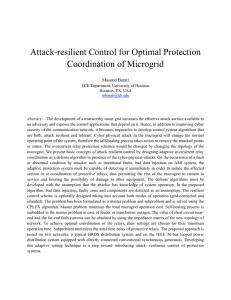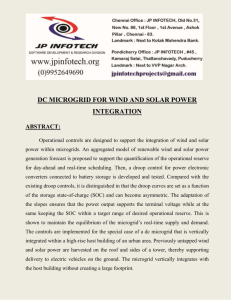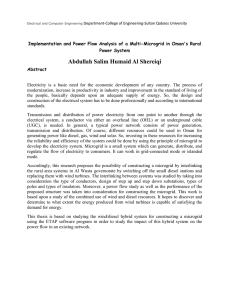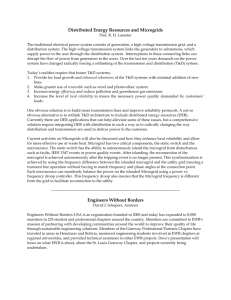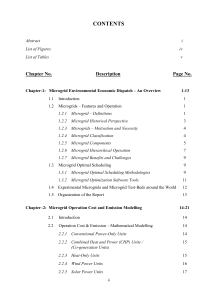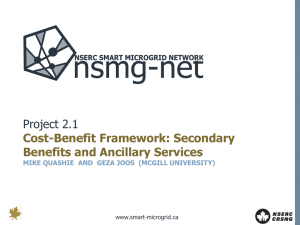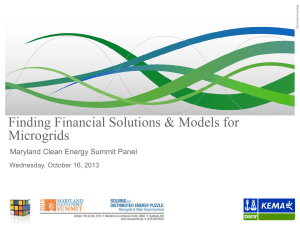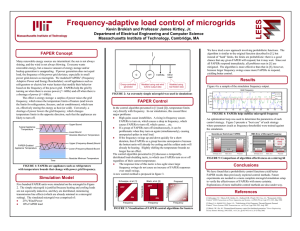Abstract - NSMG-Net
advertisement
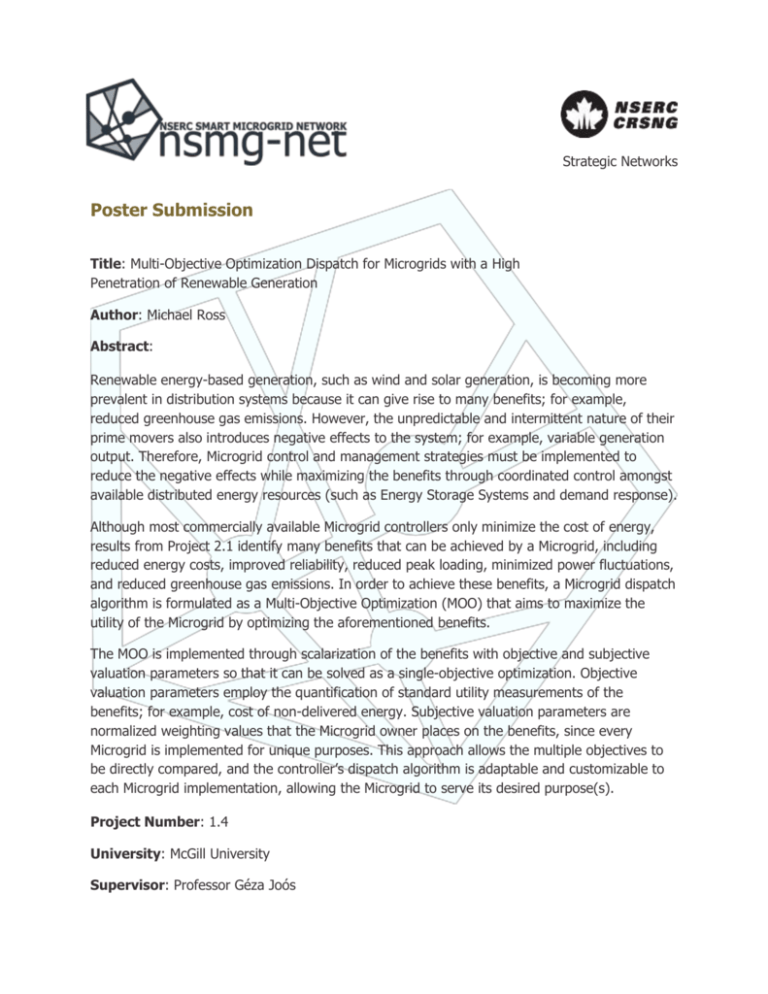
Strategic Networks Poster Submission Title: Multi-Objective Optimization Dispatch for Microgrids with a High Penetration of Renewable Generation Author: Michael Ross Abstract: Renewable energy-based generation, such as wind and solar generation, is becoming more prevalent in distribution systems because it can give rise to many benefits; for example, reduced greenhouse gas emissions. However, the unpredictable and intermittent nature of their prime movers also introduces negative effects to the system; for example, variable generation output. Therefore, Microgrid control and management strategies must be implemented to reduce the negative effects while maximizing the benefits through coordinated control amongst available distributed energy resources (such as Energy Storage Systems and demand response). Although most commercially available Microgrid controllers only minimize the cost of energy, results from Project 2.1 identify many benefits that can be achieved by a Microgrid, including reduced energy costs, improved reliability, reduced peak loading, minimized power fluctuations, and reduced greenhouse gas emissions. In order to achieve these benefits, a Microgrid dispatch algorithm is formulated as a Multi-Objective Optimization (MOO) that aims to maximize the utility of the Microgrid by optimizing the aforementioned benefits. The MOO is implemented through scalarization of the benefits with objective and subjective valuation parameters so that it can be solved as a single-objective optimization. Objective valuation parameters employ the quantification of standard utility measurements of the benefits; for example, cost of non-delivered energy. Subjective valuation parameters are normalized weighting values that the Microgrid owner places on the benefits, since every Microgrid is implemented for unique purposes. This approach allows the multiple objectives to be directly compared, and the controller’s dispatch algorithm is adaptable and customizable to each Microgrid implementation, allowing the Microgrid to serve its desired purpose(s). Project Number: 1.4 University: McGill University Supervisor: Professor Géza Joós

